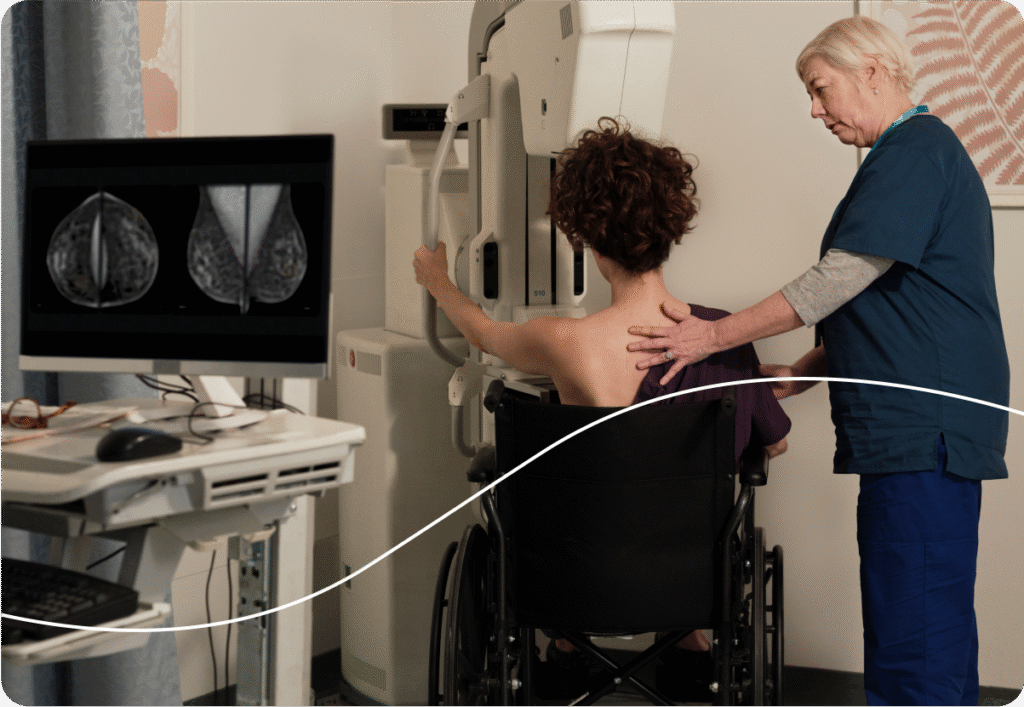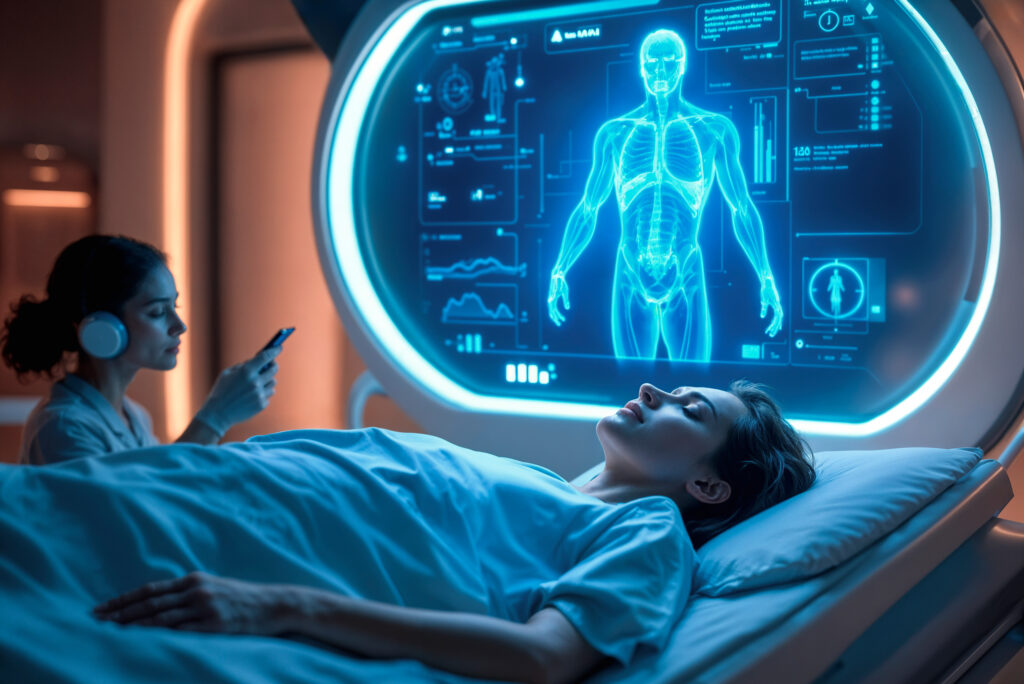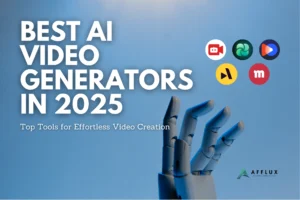AI in Healthcare: Shaping the Future of Medicine
AI in Healthcare is increasingly recognized as a transformative force within the healthcare industry, fundamentally altering the way patient care and diagnosis occur. The integration of artificial intelligence (AI) technologies in healthcare has evolved significantly over recent years, spurred by advances in machine learning, data analytics, and natural language processing. By 2025, it is anticipated that AI in Healthcare will play a critical role in addressing some of the most pressing challenges faced by healthcare providers, patients, and policymakers alike.
The current state of AI in Healthcare is characterized by diverse applications that enhance both operational efficiency and clinical decision-making. For example, AI algorithms are being employed in diagnostics, where they analyze medical images to detect conditions such as cancer with a level of precision that often surpasses human capabilities. This capability not only improves diagnostic accuracy but also reduces the time required for healthcare professionals to interpret complex imaging results. Additionally, AI-driven predictive analytics can identify patient risk factors, enabling healthcare providers to implement preventative measures more effectively.
Moreover, AI in Healthcare is revolutionizing patient engagement through personalized treatment plans and virtual health assistants, which facilitate real-time communication between patients and healthcare providers. These developments significantly enhance the overall patient experience by ensuring timely and tailored care. As we look towards 2025, the potential for AI in Healthcare to support precision medicine will be influential, allowing therapies to be customized based on genetic, environmental, and lifestyle factors. To understand AI’s broader impact, explore how AI is transforming everyday life in 2025.
This overarching focus on utilizing AI in Healthcare delineates a roadmap toward significantly improved patient outcomes. Ultimately, the ongoing advancements in AI technology are not merely enhancing existing practices; they are setting a new standard for the quality and accessibility of healthcare around the globe. This evolution marks a pivotal moment in healthcare, underscoring the essential role that AI in Healthcare will play in shaping the future of patient care and diagnosis.
Major Trends in AI in Healthcare for 2025
As we approach the year 2025, several major trends in AI in Healthcare are set to redefine the landscape of healthcare. A prominent trend is the integration of deep learning algorithms, which leverage vast amounts of data to enhance the accuracy of medical diagnoses. Deep learning, a subset of machine learning, enables AI in Healthcare systems to identify patterns and correlations in complex datasets that might be invisible to human eyes. As a result, healthcare professionals will be better equipped with precise diagnostic tools, leading to earlier intervention and improved patient outcomes.
Another critical trend in AI in Healthcare is the rise of healthcare predictive analytics. By utilizing data from various sources, including electronic health records and wearable technology, healthcare predictive analytics can forecast patient events such as disease progression or potential hospital readmissions. This proactive approach, driven by healthcare predictive analytics, allows for timely interventions and tailored treatment plans, ultimately enhancing the quality of care. Healthcare predictive analytics facilitates a shift from reactive to preventive healthcare, enabling providers to focus on maintaining patient health rather than solely addressing illnesses. For further insights into these advancements, refer to IBM’s exploration of AI in healthcare.
Natural language processing (NLP) is also playing a pivotal role in the transformation of healthcare systems through AI in Healthcare. NLP allows AI systems to understand and interpret human language, leading to more efficient communication between patients and healthcare providers. By automating the transcription of medical notes or assisting in clinical decision-making processes, NLP can significantly reduce administrative burdens on healthcare professionals, allowing them to devote more time to patient care. This trend not only streamlines workflows but also enhances the overall patient experience.
In summary, the integration of deep learning algorithms, healthcare predictive analytics, and natural language processing signifies a transformative era for AI in Healthcare. These trends are expected to contribute to higher diagnostic accuracy, personalized medicine, and better patient outcomes by 2025, revolutionizing the way healthcare systems operate.
AI-Powered Medical Diagnostics: Enhancing Accuracy and Speed
The use of AI-powered medical diagnostics is transforming how healthcare professionals approach disease identification. AI-powered medical diagnostics tools are designed to improve the accuracy and speed of diagnoses, empowering physicians to make informed decisions regarding patient care more rapidly. These advancements are becoming increasingly vital in a healthcare environment where timely intervention can significantly alter patient outcomes.
One notable advancement in AI-powered medical diagnostics is found in imaging techniques. Machine learning algorithms are being utilized to interpret medical images, such as X-rays, MRIs, and CT scans, with remarkable precision. For instance, AI in Healthcare systems can detect anomalies that may be missed by the human eye, like subtle changes in tumor morphology. This capability not only enhances diagnostic accuracy but also expedites the radiologists’ workflow by prioritizing the cases that require immediate attention. As a result, patients can receive appropriate treatments sooner, improving recovery rates.
In the realm of pathology, AI in Healthcare applications extend beyond imaging. For example, deep learning models are increasingly able to analyze histopathological slides, identifying cancerous cells with a high level of accuracy. Such models are trained on extensive datasets, allowing them to recognize patterns indicative of various conditions. This is particularly beneficial in cancer diagnostics, where the precision of the diagnosis can impact treatment plans and patient prognosis.


Additionally, genetic testing is experiencing a revolution due to AI in Healthcare integration. By employing AI algorithms on genetic data, healthcare providers can uncover mutations associated with specific diseases much more efficiently. This not only aids in diagnosing inherited conditions but also assists in developing tailored therapeutic strategies based on an individual’s genetic profile, moving toward a more personalized approach to healthcare. Learn more about these diagnostic advancements at Google Health’s AI initiatives.
In summary, AI-powered medical diagnostics in AI in Healthcare are enhancing the accuracy and speed of disease identification across various medical fields. By leveraging advanced imaging techniques, pathology analysis, and genetic testing, healthcare professionals can make faster and more accurate diagnoses—ultimately leading to improved patient outcomes.
Precision Medicine AI: Tailoring Treatments with AI
The integration of precision medicine AI has opened new avenues for personalized patient care, significantly enhancing the way treatments are tailored to individual needs. By analyzing extensive datasets, including genetic information, medical history, and lifestyle factors, precision medicine AI algorithms can offer recommendations that align closely with each patient’s unique characteristics. This approach stands in stark contrast to generic treatment plans that might not consider the nuances of an individual’s health profile.
One of the most significant advancements in this field is the application of machine learning algorithms that assess individual patient characteristics. These algorithms can process vast amounts of data, identifying patterns that could inform tailored therapeutic strategies. For instance, in oncology, precision medicine AI systems can help oncologists select the most effective chemotherapy regimens by predicting how a patient’s tumor will respond based on its genetic makeup. This predictive capability not only optimizes treatment outcomes but also minimizes unnecessary side effects by avoiding ineffective medications.
However, while the potential for personalized patient care through precision medicine AI is considerable, ethical considerations must be addressed. Questions regarding data privacy and the potential for bias in algorithmic decision-making raise concerns that cannot be overlooked. The integrity of health data and consent for its use in training AI models require careful management to foster trust among patients. Furthermore, the challenge of integrating these advanced AI solutions into existing healthcare systems poses a significant hurdle. Healthcare professionals must be adequately trained to utilize these tools and understand their limitations, ensuring that technology enhances rather than detracts from the patient experience.
As we look towards 2025, it is evident that precision medicine AI powered by AI in Healthcare will fundamentally transform diagnosis and treatment methodologies in healthcare, ultimately leading to improved patient outcomes and satisfaction.
AI in Telemedicine and Remote Monitoring
The advent of AI in telemedicine has significantly transformed healthcare paradigms, particularly in remote monitoring and telemedicine. With the rise of digital health solutions, AI in telemedicine technologies are playing a crucial role in enabling healthcare providers to deliver patient care outside traditional clinical settings. This shift towards virtual care has become increasingly essential, especially in managing chronic conditions and ensuring continuous patient engagement.
AI in Healthcare tools have the capability to track patient health metrics in real-time, utilizing wearable devices and mobile applications. These innovations allow for the continuous collection of vital data such as heart rate, glucose levels, and blood pressure. By analyzing this data, AI in telemedicine algorithms can provide insights that facilitate timely interventions, minimizing the need for in-person visits. For instance, patients with diabetes can rely on AI-powered applications that alert them to critical fluctuations, prompting immediate corrective actions, while simultaneously providing healthcare providers with valuable data for monitoring patient progress.
Furthermore, AI in telemedicine has driven significant growth in virtual consultations. Virtual consultations, previously limited by geographical constraints, are now accessible to a broader population. Patients can consult with healthcare professionals from the comfort of their homes, enhancing convenience and compliance. AI in Healthcare systems enhance these consultations by assisting physicians in diagnosing conditions more accurately through symptom analysis and historical data comparison, promoting informed decision-making.
The impact of AI in telemedicine on patient-provider relationships is also noteworthy. By fostering proactive health management and personalized care, patients feel more empowered and engaged in their health journeys. The reliance on data-driven insights fosters a partnership where healthcare providers can offer tailored support based on individual patient needs. Overall, the integration of AI in telemedicine in AI in Healthcare is revolutionizing patient care by improving chronic disease management, enhancing access to healthcare, and reinforcing patient-provider communication. For more on telemedicine advancements, see Teladoc Health’s AI innovations.
Healthcare Security and AI: Addressing Challenges
As AI in Healthcare integrates further into healthcare systems, it brings not only innovations but also significant security concerns. The increasing reliance on AI in Healthcare technologies for patient care and diagnosis raises critical issues around data privacy and the vulnerabilities inherent in AI algorithms. Given that healthcare data is among the most sensitive types of information, any breach can lead to devastating consequences for both patients and healthcare providers.
One of the primary security threats associated with AI in Healthcare is the risk of unauthorized access to patient records. AI systems often require access to vast amounts of data to function effectively, making them an attractive target for cybercriminals. If security protocols are not adequately implemented, critical patient data could be exposed or even modified, leading to incorrect diagnoses or treatment plans. Furthermore, the algorithms themselves can become targets; adversarial attacks can manipulate AI outputs, potentially rendering automated diagnosis tools ineffective or harmful.
To address these challenges, healthcare organizations must prioritize cybersecurity in their AI in Healthcare implementations. Conducting thorough risk assessments can help identify vulnerabilities within the systems and develop strategies to mitigate these risks. Employing advanced encryption methods will also ensure that patient data remains protected during storage and transmission. Regular audits and updates of the AI systems, alongside stringent access controls, can fortify defenses against unauthorized access.
Moreover, training healthcare providers on data privacy best practices is crucial. Ensuring that staff are well-informed about potential threats and the importance of safeguarding patient information contributes to a culture of security. In addition, partnerships with cybersecurity experts can provide organizations with insights into emerging threats and appropriate countermeasures, essential in adapting to a rapidly evolving digital landscape.
AI in Clinical Decision Support Systems
The integration of AI in Healthcare in Clinical Decision Support Systems (CDSS) is fundamentally transforming the landscape of patient care and diagnosis. AI technologies enhance CDSS by analyzing vast amounts of clinical data and patient history to provide actionable insights that assist healthcare professionals in making informed decisions. These systems employ sophisticated algorithms to process data from electronic health records, medical literature, and clinical guidelines, ultimately supporting clinicians in their decision-making processes.
One of the key advantages of AI in Healthcare in CDSS is its ability to recognize patterns within data that may not be immediately apparent to human clinicians. By leveraging machine learning and natural language processing, AI can sift through complex datasets to identify trends, predict patient outcomes, and propose evidence-based recommendations. This not only streamlines the decision-making process but also mitigates the potential for human error, enhancing patient safety and care quality.
Numerous successful implementations of AI-powered CDSS can be observed across various healthcare settings. For instance, one noteworthy example involves a CDSS that utilizes AI in Healthcare to support the early detection of sepsis in hospitalized patients. The system monitors vital signs and laboratory results in real-time, providing alerts to clinicians when a patient shows signs of developing sepsis. Such innovations enable timely interventions that can significantly improve patient outcomes and reduce mortality rates.
Moreover, AI in Healthcare in CDSS can personalize treatment options by analyzing individual patient data. This capability allows healthcare professionals to tailor their approaches based on patients’ unique clinical profiles, thereby enhancing the overall effectiveness of care delivery. As AI technologies continue to evolve, the potential for further advancements in clinical decision support remains vast, promising an even more profound impact on how healthcare is delivered.
The Future of AI: Implications for Healthcare Professionals
The integration of AI in Healthcare into healthcare is rapidly transforming the landscape of patient care and diagnostics. As AI in Healthcare technologies advance, healthcare professionals are likely to experience significant changes in their job roles and the skills required to remain effective within the industry. One of the most pressing concerns relates to job displacement; however, many experts believe that rather than replacing healthcare workers, AI in Healthcare will complement and enhance their capabilities. For instance, AI can automate administrative tasks, allowing professionals to focus more on patient care, thereby improving overall efficiency.
To thrive in this new environment, healthcare professionals will need to acquire a new set of skills. Proficiency in data analysis, the ability to work with AI in Healthcare systems, and a solid understanding of machine learning concepts will become increasingly important. Additionally, continuous education and training will play a critical role in preparing these professionals for their evolving roles. Hospitals and institutions must therefore invest in ongoing professional development programs that focus on AI literacy, as well as ethical considerations surrounding its use in patient care.
Collaboration between AI in Healthcare systems and healthcare experts will be essential for achieving optimal patient outcomes. As predictive analytics and diagnostic algorithms become more common, healthcare professionals must learn to trust and integrate these technologies into routine practice while maintaining their clinical judgment. This symbiotic relationship holds the potential for enhanced decision-making and improved patient care, as AI in Healthcare can provide critical insights while healthcare professionals offer the human touch and empathy needed in patient interactions.
In essence, the future of AI in Healthcare is not solely about technological advancement; it is about redefining the roles of healthcare professionals and ensuring they are equipped to navigate this transformative period effectively. By embracing ongoing education and fostering collaboration between AI and healthcare practitioners, the industry can maximize the benefits of these groundbreaking advancements.
Embracing AI for Future Healthcare Innovations
As the healthcare landscape continues to evolve, the integration of AI in Healthcare by 2025 promises to bring about significant advancements in patient care and diagnosis. Throughout this discussion, we have explored various facets of AI in Healthcare’s role in the medical field, emphasizing its potential to not only augment clinical decision-making but also enhance patient engagement and streamline administrative processes. The ability of AI in Healthcare to analyze vast amounts of data swiftly and accurately positions it as a critical tool for healthcare providers in delivering personalized treatment plans and improving health outcomes.

However, with these innovations come ethical considerations that must be diligently addressed. Ensuring patient privacy and data security remains paramount as AI in Healthcare systems become increasingly involved in healthcare delivery. It is essential for stakeholders, including healthcare professionals, technology developers, and policymakers, to collaborate closely to create guidelines that protect patients while allowing for the beneficial use of AI in Healthcare technologies.
Furthermore, adapting to the rapid technological shifts necessitates a commitment to continuous education and training for healthcare professionals. Staying abreast of AI in Healthcare developments will enable practitioners to leverage these innovations effectively. As we approach 2025, it is crucial for the healthcare community to recognize the transformative potential of AI in Healthcare while fostering an environment of trust and transparency.
In conclusion, embracing AI in Healthcare is not merely about technological advancement; it is about forging a future where human compassion and artificial intelligence coexist to improve patient care. To realize this vision, active participation from all stakeholders is required. By working together, the healthcare sector can create a balanced integration of AI in Healthcare that enhances, rather than replaces, the human touch inherent in patient care.





